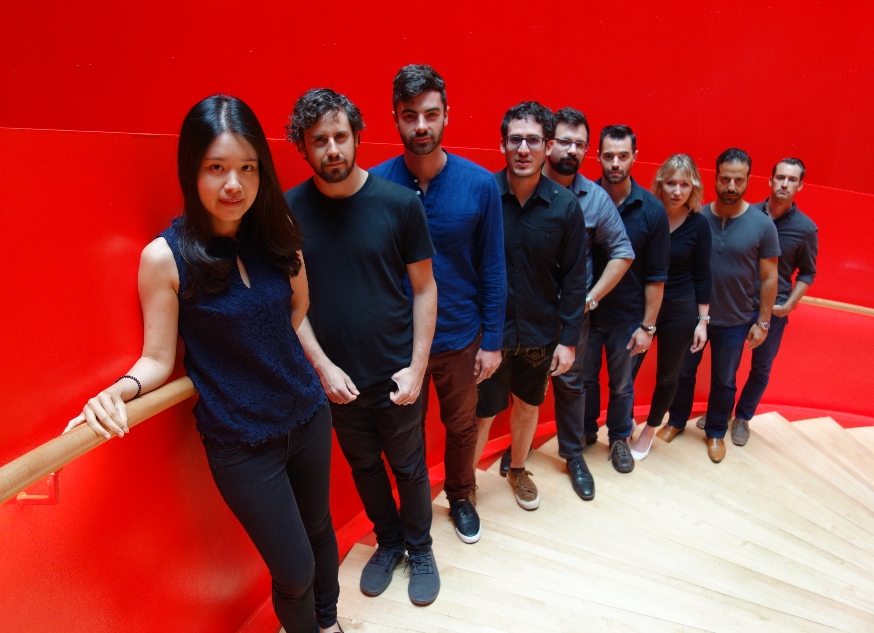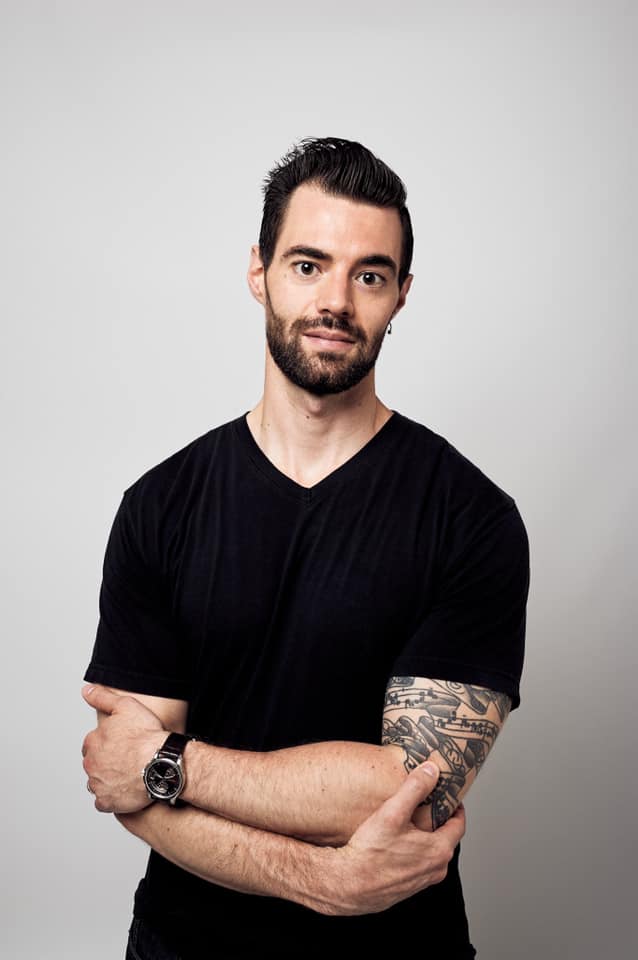When you think of composing music, what comes to mind? You might picture orchestras of strings and woodwinds, or performances at black-tie events in concert halls. This classic interpretation is accurate in some cases — but music composition encompasses more than many realize.
“In reality, there have never been more people from different backgrounds writing music,” says Alex Burtzos, an assistant professor of composition in the UCF School of Performing Arts. “The field is more dynamic and influential now than at any point in Western history.”
Burtzos is no stranger to the variety and innovation of contemporary composition. Based in New York City and Orlando, his music has been performed across four continents by preeminent contemporary musicians and ensembles. As the Endowed Chair of Composition Studies at UCF, he teaches composition, orchestration, film scoring, video game scoring and music technology. This wide range of subjects aligns with the wide range of paths that a composer can follow in their career.
“As screen media have proliferated, technological fluency has become an increasingly important part of this equation,” Burtzos explains. “An enormous percentage of the jobs available to composers are now in the field of media scoring, whether it be film, TV, video games, YouTube videos and similar newer media outlets.”
Video game scoring is a particularly relevant field for students embarking on a career in musical composition today, and this was no exception for music composition alumna Rachel Lee ‘21. As a gamer herself, she was drawn to the host of unique creative considerations that come with scoring for a video game.
“When you’re playing a video game, the area music will change depending on if you’re just walking around and looking at things, or if you get into combat or if the weather changes,” Lee explains. “Dynamic music is very cool, and that’s definitely one of the big things that pulls me into video game music more than anything else.”
Proficiency in music technology is equally relevant for emerging composers. This practice involves editing sound in a digital environment and using sequencing software, notation software and virtual instruments to create the final product.
“[Composers are] increasingly expected to have a high degree of technical knowledge,” says Burtzos. “A huge percentage of composers work entirely digitally, using music notation software, digital audio workstations or even working with programming language to seek out new sonic ideas.”
Beyond the broad range of career options available for today’s composition students, significant gains have been made in the field’s diversity, both stylistically and demographically. Contemporary composers are incorporating elements of a wide variety of music styles in their work, from avant-garde and jazz to metal and hip-hop.
“The style that seems popular right now is fusion, which naturally is a super broad genre,” explains music composition alum Valentine Hueckel ‘21. “Basically, [composers] take inspiration from all these different genres, and then write a piece with them.”
Since graduating, Hueckel plans to continue studying music composition by pursuing a master’s degree at The New School in New York City. They also hope to explore the experimental aspects of composition by composing music for instruments of their own creation.
To Burtzos, the mission of increasing the diversity of contemporary classical music is a personal one. He serves as the founder and artistic director of ICEBERG New Music, a New York-based composers’ collective that presents concerts featuring music from a wide spectrum of styles and approaches to composition. It also participates in educational outreach, awarding scholarships to young composers from underrepresented backgrounds.

“Obviously, there’s a moral imperative to address the problem — it’s simply not right that some composers should be favored over others for reasons that have nothing to do with the music they write,” Burtzos explains. “But there’s also an artistic imperative. By excluding certain voices from the craft, we rob ourselves of the richness and depth that would result from a truly equitable musical world. We owe it to ourselves, and to future listeners, to do all we can to work towards real, sustainable equity in the arts.”
Click here to learn more about studying composition at UCF: https://performingarts.cah.ucf.edu/program/composition/
